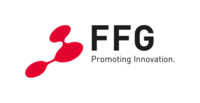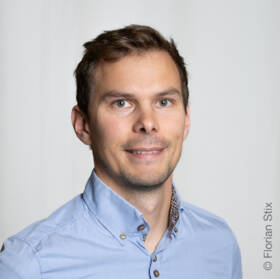In-service training program on explainable and trustworthy artificial intelligence.
Background
That artificial Intelligence (AI) has found its way into all sectors of the economy, becomes manifest in many everyday applications. Two factors are the main drivers of this development: new techniques and methods (e.g., neural networks) and that prices for powerful hardware able to process large amounts of data have fallen. Although using AI can reap many benefits, its problems and shortcomings should not go unconsidered. For example, there is room for improvement with regard to reliability, trustworthiness, and the security (e.g., pedestrian recognition in autonomous vehicles) of AI systems. Understanding such shortcomings in greater depth requires expert knowledge, which many data scientists do not have. Indeed, there is a gap between what kind of expertise on data science is needed and what is available on the labour market.
Project content
Trustworthy and explainable AI models are specifically important in healthcare and bioengineering. However, apart from the number of data scientists having expertise in both areas (AI plus medical knowledge) being low, smaller companies but even single departments in large corporations often do not have enough resources to hire additional personnel. To remedy this, we offer in-depth training for domain experts that goes beyond basic data science and teaches trustworthy AI exhaustively. At the end of the training program the participants have acquired skills that enable them to develop and implement new solutions, and test their applicability in real-world environments.
Goals
In this innovation camp we extend the skill set of data scientists (specifically those with domain knowledge in bioengineering and health) by teaching them how to make AI models explainable and trustworthy. They learn
- to understand problems relevant to their field and how to solve these problems using data science methods (with a strong focus on trustworthy AI).
- to collect, aggregate, and clean up data, as well as assess the quality of data sources for analysis while considering aspects such as data transparency and fair data at the same time.
- to store and query data according to criteria in their area of application and adjust data protection requirements along the entire data lifecycle when necessary.
- to select appropriate data analysis models for specific problems. This includes being able to interpret the model, present it, evaluate it and improve it if necessary — all with devoting great attention to aspects such as explainability and trustworthiness.
Methodology
The innovation camp takes place at the University of Applied Sciences St. Pölten (6-8 training days in several blocks). It includes a practical project with feedback loops to solidify what was learned. Overall, the course is built upon the Accelerated Learning approach (developed by Dave Meier) and its ideas and didactic concepts on efficient learning in groups. There are four phases: 1) In the Preparation Phase the participants receive a "Learner Preparation Kit" (containing videos, quizzes, etc.) helping them to learn about the contents of the Innovation Camp in a playful manner. 2) During the Presentation Phase theoretical content is taught interactively (quizzes, tests, flashcards, team presentations, etc.) by using Accelerated Learning methods. 3) During the Practise Phase the participants reflect on what they have learned so far. This helps to enhance understanding and retention of information imparted (via exchange of ideas, trial and error, role plays, group discussions, presentation and explanation of processes or models etc.). In the final 4) performance phase, the knowledge acquired is put into practise by applying it to problems arising in everyday work.
Result
The graduates of the Innovation Camp acquire knowledge in the field of Data Science with a strong focus on trustworthy and reliable artificial intelligence (trustworthy AI). The course largely comprises technical content, but also turns the spotlight on ethical and legal aspects. The main mission of the project is accomplished, when the course graduates are able to use the skillset they have acquired to solve problems arising in data science on their own.
You want to know more? Feel free to ask!
Service and Competence Center for Higher Education Development and Quality Management
Researcher IT Security (BA)
Department of Computer Science and Security
- Biome Diagnostics GmbH
- Care Development GmbH
- Lellis GmbH
- stAPPtronics GmbH
- VivaBack GmbH


